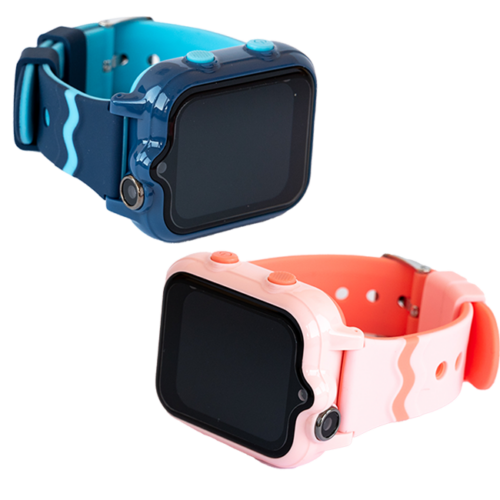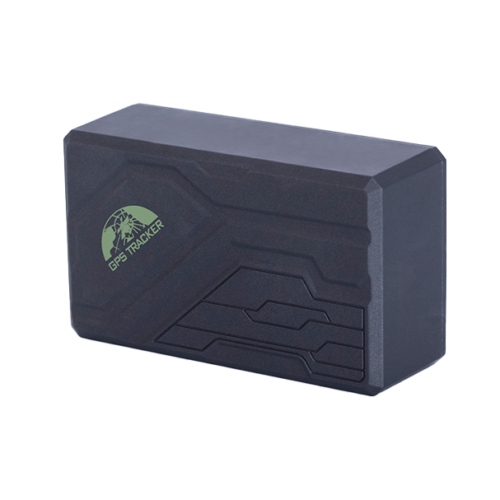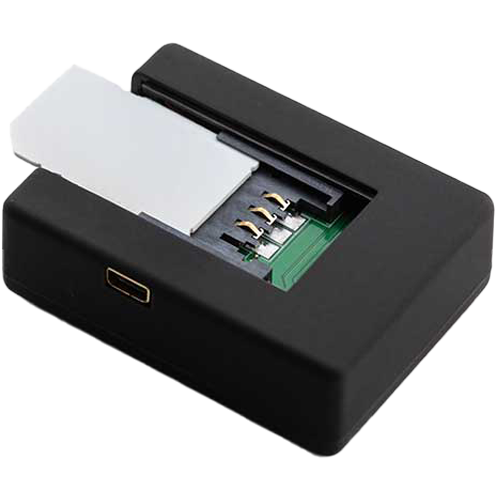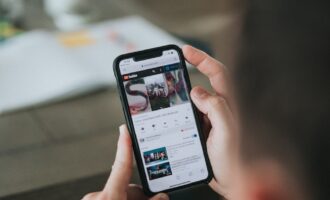In today’s interconnected world, tracking someone’s location has become easier than ever before, thanks to advancements in technology and the widespread use of smartphones.
While it is of utmost importance to respect privacy and maintain ethical boundaries, there are also legitimate reasons for monitoring someone’s whereabouts.
With the proliferation of location-based applications and services, staying informed about where people are has become remarkably simple. To determine someone’s current location, all you need to do is locate their mobile phone, as most of us are inseparable from these devices.
Smartphones have become an integral part of our lives, serving as constant companions. Since they are equipped with GPS capabilities, these devices enable us to navigate unfamiliar places, discover nearby amenities, and share our location with others. As a result, the ability to track someone’s location has been revolutionized, opening up a range of possibilities and benefits.
Tracking someone’s cell phone has become accessible to anyone. It no longer requires advanced technical skills or expertise — in fact, tracking a cell phone’s location has become relatively straightforward. With the abundance of location-tracking methods and apps available, individuals can now take matters into their own hands.
In the subsequent sections, we will explore some of the most effective methods for tracking someone’s location, including the use of tracking apps. By familiarizing ourselves with these options and understanding their functionalities, we can make informed decisions and utilize location-tracking tools responsibly.
How Location Tracking Can Benefit Your Personal and Professional Life
Location tracking has become a powerful tool that can bring numerous advantages to both our personal and professional lives. By leveraging the capabilities of modern technology, we can unlock a range of benefits that enhance our safety, improve efficiency, and provide valuable insights. From ensuring the well-being of loved ones to optimizing business operations, location tracking offers numerous perks in various aspects of our lives.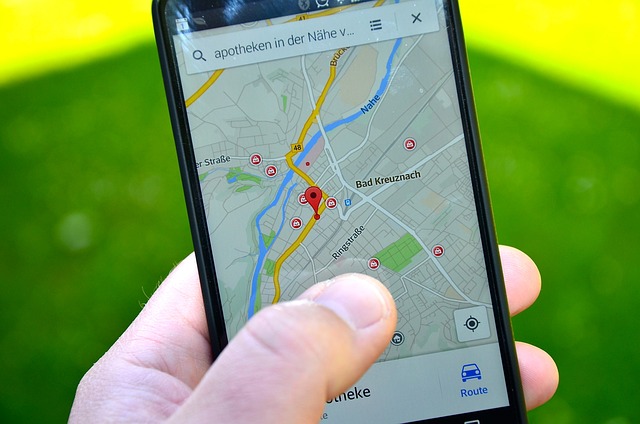
Safety and security:
One of the primary reasons for tracking someone’s location is to ensure their safety and security. Parents, for instance, may want to monitor their children’s whereabouts to make sure they are safe and protected. Similarly, employers may track the location of their employees who work remotely or engage in fieldwork to ensure their well-being and timely assistance if needed. Tracking can provide peace of mind and a sense of security to those responsible for the well-being of others.
Emergency response:
Tracking someone’s location can be crucial in urgent situations. Emergency response teams, such as law enforcement agencies, can benefit greatly from accurate and real-time location data. It enables them to swiftly respond to distress calls, accidents, or incidents where immediate assistance is required. Precise location tracking can save lives, expedite response times, and improve overall emergency management.
Uncovering infidelity:
Location tracking can be used to uncover instances of infidelity in personal relationships. Suspicious partners may resort to tracking their significant other’s location to gather evidence of their affairs.
Asset and fleet management:
Businesses that rely on assets and fleets can optimize their operations through location tracking. Logistics companies, for instance, can monitor the movement of their vehicles and assets to ensure efficient delivery, minimize delays, and prevent theft or misuse. Tracking can also help with route optimization, reducing fuel consumption, and improving overall productivity. By monitoring assets and fleets, businesses can enhance customer satisfaction and streamline their operations.
Personal convenience and travel:
Tracking one’s own location can be beneficial for personal convenience and travel purposes. Navigation applications and services leverage location data to provide accurate directions, real-time traffic updates, and suggestions for nearby points of interest. Individuals can plan their routes, avoid congestion, and discover new destinations with ease. Additionally, tracking personal locations can assist in finding lost or misplaced devices, which will improve your overall security.
It is important to note that while there are legitimate reasons for tracking someone’s location, it is crucial to respect privacy, obtain proper consent, and adhere to legal and ethical guidelines. Transparency, clear communication, and responsible usage of location-tracking tools are essential for maintaining trust and upholding individual rights.
Traditional Methods Used for Secretly Tracking Someone’s Location
Traditional methods involve utilizing cell phone carriers for communication-based tracking and GPS-enabled devices for more precise location determination.
When using these methods to track someone’s location, it is essential to respect individuals’ rights to privacy, obtain consent, and comply with legal obligations. By following ethical practices, we can balance the benefits of location tracking with privacy concerns in an increasingly interconnected world.
Communication-based tracking
- Utilizing cell phone carriers
Cellular networks play a vital role in tracking the location of mobile devices. When a mobile device is connected to a network, the cellular towers triangulate its signal strength to determine its approximate location. This information allows carriers to provide services like emergency calls and efficient call routing.
However, accessing this location data comes with limitations and legal requirements. Generally, law enforcement agencies can request location information from cell phone carriers through legal processes, such as obtaining a warrant. This ensures that privacy rights are respected and the use of such data is regulated.
- GPS-enabled devices
GPS-enabled devices, such as smartphones and wearables, offer a more precise and accurate means of location tracking. They utilize the Global Positioning System (GPS) technology to determine their exact geographical coordinates. GPS works by receiving signals from multiple satellites and calculating the device’s position based on the time it takes for those signals to reach it.
Keep in mind that it is essential to understand and comply with the applicable laws and regulations regarding tracking individuals through their GPS-enabled devices.
Social media and digital footprint
Social media platforms and other online services can inadvertently provide location-related information about individuals. Publicly shared geotags, check-ins, and location-based posts can reveal where people are or where they’ve been in the past. By analyzing these digital footprints, it is possible to gather information about someone’s whereabouts.
Advanced Techniques for Monitoring Someone’s Movements
In today’s technologically advanced world, there are sophisticated methods available for monitoring and tracking someone’s movements.
These innovative techniques leverage cutting-edge technologies to provide precise and real-time location information, thereby offering a new level of surveillance capabilities.
Wi-Fi and IP Address Tracking
Wi-Fi and IP address tracking are methods that can be used to determine someone’s location based on their network connections. While not as precise as GPS, these techniques provide valuable insights into the general area or region associated with the device.
Wi-Fi tracking involves monitoring the Wi-Fi networks in the vicinity of the target device. Each Wi-Fi network has a unique identifier called a Service Set Identifier (SSID). By mapping the SSIDs to their physical locations, it becomes possible to estimate the device’s whereabouts within the range of those networks. This method is commonly employed in location-based services, such as indoor navigation systems or targeted advertising.
It’s important to note that Wi-Fi tracking relies on the availability and accessibility of Wi-Fi networks in the surrounding area. The accuracy of this method may vary depending on factors like the density of Wi-Fi networks and the strength of their signals.
IP address tracking involves analyzing the IP address associated with the device. An IP address is a unique numerical label assigned to each device connected to a network. By examining this address, it is possible to determine the general geographical region or internet service provider (ISP) associated with the device.
However, IP address tracking is limited in terms of pinpointing the exact location of the device. These addresses can only provide information about the region or ISP, and not the precise physical address. Additionally, factors like virtual private networks (VPNs) or proxy servers can further obscure the accuracy of IP-based geolocation.
Both Wi-Fi and IP address tracking methods have their limitations, such as the need for the device to be connected to a Wi-Fi network or the inability to provide precise real-time location data. These techniques can serve as supplemental methods for location tracking but may not provide the same level of accuracy and reliability as GPS-based tracking or dedicated tracking apps.
Bluetooth Tracking
Bluetooth tracking is a method that utilizes Bluetooth technology to monitor and track the proximity and movement of devices that have enabled it. This technique relies on the detection and monitoring of Bluetooth signals emitted by devices within the range.
Proximity-based tracking: Bluetooth tracking works by detecting the presence of nearby Bluetooth devices. Bluetooth signals have a limited range (typically up to 100 meters) and can be used to estimate the proximity of the tracked device. By monitoring the strength of these signals, it becomes possible to determine whether the device is moving closer or farther away.
This method is commonly used for applications like asset tracking, indoor navigation, and contact tracing systems. It allows businesses and organizations to monitor the movement and interactions of devices or individuals within a specific area.
Bluetooth beacon tracking: Bluetooth beacons are small, battery-powered devices that transmit Bluetooth signals at regular intervals. These beacons can be strategically placed in physical locations to create a network of reference points for tracking purposes. When a Bluetooth-enabled device comes within the range of a beacon, it can receive and process its signal. This allows the device to determine its relative position in relation to the beacon.
Bluetooth beacon tracking is often used in indoor positioning systems, retail analytics, and targeted marketing. It offers a more precise and localized tracking solution within specific environments, such as shopping malls, airports, or exhibition halls.
However, it’s important to note that Bluetooth tracking has certain limitations. The accuracy of this method depends on factors like signal strength, obstructions, and interference from other Bluetooth devices in the area. These signals can also be affected by environmental factors such as walls, furniture, or electromagnetic interference.
By offering proximity-based insights within a limited range, Bluetooth tracking provides a complementary approach to other location-tracking methods. Nevertheless, it should be used in compliance with privacy regulations and ethical considerations to ensure the protection of individuals’ rights and data security.
Cell Phone Tracking Apps
Dedicated phone tracking apps that offer more comprehensive and real-time location tracking features are available, as well. These apps often require installation on the target device and may provide additional functionalities such as geofencing, location history, and real-time notifications.
Tracking apps offer several advantages over the other methods mentioned above.
Real-time tracking
Tracking apps provide the ability to monitor someone’s location in real time, allowing you to have up-to-date information about their movements. This feature can be particularly useful in situations where immediate location updates are crucial, such as ensuring the safety of loved ones or tracking the whereabouts of employees in a business setting.
Enhanced accuracy
Many tracking apps utilize a combination of GPS, Wi-Fi, and cellular network data to provide highly accurate location information. These apps can pinpoint the exact coordinates of the tracked device, offering a level of precision that may surpass other methods like Wi-Fi or IP address tracking. Such accuracy can be vital in scenarios where precise location details are essential, such as search and rescue operations or fleet management.
Additional features and functionality
Tracking apps often come with additional features that can enhance the tracking experience. These may include geofencing, which allows you to set virtual boundaries and receive notifications when the tracked device enters or exits specific areas. Some apps also offer location history logs, enabling you to view a timeline of past movements. Such features provide comprehensive insights into someone’s location patterns and can be valuable for personal and business purposes alike.
How Do Tracking Apps Determine Someone’s Location?
Tracking apps employ various mechanisms to determine and transmit someone’s location information. These apps typically utilize a combination of technologies and data sources to provide accurate and real-time location updates.
- GPS technology
One of the primary methods used by tracking apps is the GPS (Global Positioning System) technology. GPS relies on a network of satellites orbiting the Earth to calculate precise location coordinates. By receiving signals from multiple satellites, the tracking app can triangulate the device’s position and determine its latitude and longitude.
- Wi-Fi and cellular networks
Tracking apps may also utilize Wi-Fi and cellular networks to determine someone’s location. Wi-Fi networks and cellular towers have unique identifiers associated with specific locations. By mapping these identifiers and analyzing signal strengths, the app can estimate the device’s proximity to these networks and determine its approximate location within their range.
- Location services
Many smartphones have built-in services that provide information about the device’s location. Tracking apps can access these services to retrieve location data. These may include GPS, Wi-Fi, cellular network-based location, or a combination of these methods. The app can then retrieve the location data from the device’s operating system.
- Data transmission
Once the tracking app determines the device’s location, it needs to transmit that information to a designated recipient or server. This can be achieved through various means, such as mobile data or Wi-Fi connections. The app securely sends the location data, typically in real-time, to the intended recipient, who can view it through a web portal or a companion app.
Data Delivery to the End User in Tracking Apps
Once tracking apps collect the location data, the subsequent steps can vary depending on the specific app and its intended purpose.
Here are some common scenarios:
- User interface: Tracking apps typically provide a user interface through a web portal or a companion app. The end user, who may be an individual, a parent, or a business owner, can access this interface using their credentials. They can then view the tracked device’s location on a map, along with additional details such as timestamps, speed, and distance traveled.
- Geofencing and alerts: Some tracking apps offer geofencing functionality, allowing the end user to set up virtual boundaries or zones. When the tracked device enters or exits these predefined areas, the app can send notifications or alerts to the end user. This feature is particularly useful for monitoring the movement of children, elderly family members, or employees within specific geographic areas.
- Location history: Many tracking apps store historical location data, allowing the end user to review past movements over a specific time period. This feature provides a timeline of the tracked individual’s locations, enabling the end user to analyze patterns, identify trends, or generate reports based on the collected data.
- Data analysis and reporting: Tracking apps may offer additional analytical features, such as generating reports, visualizing location data on charts or graphs, or providing insights into behavior patterns. These functionalities can be valuable for businesses seeking to optimize operations, assess performance, or analyze customer behavior based on location data.
It’s important to note that the usage and handling of location data should align with privacy laws and ethical considerations. Responsible tracking app providers prioritize data security, consent, and transparency.
Recommendations for a Reliable Location Monitoring App
Choosing the right location monitoring app can be challenging, given the multitude of options available on the market.
However, when it comes to reliability and features, the SpyTech phone tracking software stands out as a highly recommended choice.
With a proven track record, this app offers several advantages:
Tried and tested software: SpyTech has undergone extensive evaluation to ensure its functionality and performance. It has been thoroughly tested by numerous users, which only provides additional assurance in its capabilities.
Secure data handling: The app prioritizes the security and privacy of the collected data. It employs robust encryption measures to safeguard sensitive information, thus ensuring that the tracked individual’s location remains confidential.
Trusted distributor: SpyTech is a reputable provider known for its commitment to delivering reliable and trustworthy software solutions. Therefore, you can rest assured — the app comes from a trusted source, which minimizes any potential risks or concerns.
Technical support: The app offers reliable technical support trained to address any queries or issues that may arise during installation or usage. Their dedicated customer service team is readily available to assist users and provide timely resolutions.
Additional features: In addition to location monitoring, the SpyTech app offers a range of supplementary options bound to enhance the tracking experience. These may include geofencing, call and message monitoring, access to multimedia files, and remote control functionalities.
After considering these factors, SpyTech emerges as a recommended choice for individuals seeking a reliable location-monitoring app. Its thorough testing, secure data handling, reputable distributor, responsive technical support, and additional features make it a comprehensive solution for monitoring someone’s location with peace of mind.
Try It for Free With a 48-Hour Trial and See for Yourself!
Ready to unlock the full potential of location monitoring?
We invite you to take advantage of our exclusive offer: a 48-hour free trial for theSpyTech phone tracking app with no purchase obligations. It’s your chance to see how it can revolutionize your tracking needs firsthand.
But that’s not all — we’re here to support you every step of the way. Our dedicated technical support team is committed to ensuring your success. From seamless installation to helping you unleash the app’s maximum capabilities, we’re just a call or message away.
Don’t miss out on this incredible opportunity to experience the power of SpyTech. Sign up for our 48-hour free trial now and discover how easy and effective location monitoring can be. Get started today and let us show you the future of tracking technology!


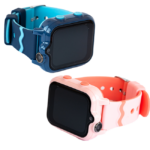
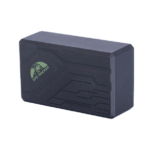
 By
By
